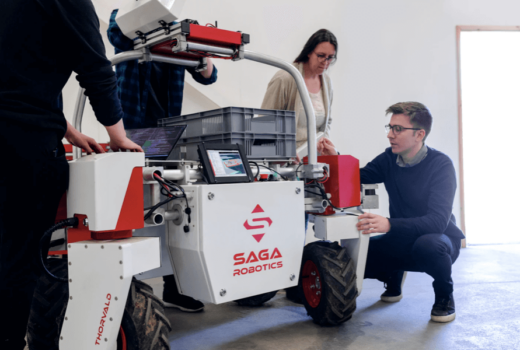Alle kennis open

U leest het betoog van staatssecretaris Dekker hieronder.
Thank you for inviting me to speak here today. It is an honor to meet with you, with the RU-11, prominent members of the best research facilities in Japan. Coming from all the corners of your country, Tokyo, Osaka, even from the beautiful Island of Hokkaido.
And how applicable to discuss globalization here, in this room: the Dejima-lounge. After all, some 350 years ago, Japanese interpreters already worked together with a handful of Dutch traders on the small island of Dejima. At a time when Japan was not yet trading with the outside world much, these interpreters supported international trade by making sure no one got lost in translation. While at the same time, they acted as a conduit for science – mainly transferring Western knowledge to Nagasaki.
The Dutch doctors, who came along with the traders on the ships, taught these interpreters the fundamentals of chemistry, anatomy and Western medicine. And so, while Japan at that time chose to stay very self-supporting, the shogunate made an exception for the Dutch.
One result of this was the establishment of the School for Dutch Studies by the interpreter Fukuzawa Yukichu in 1858. This institute survives to this day as the prestigious Keio University.
Of course, your and our horizons have expanded since then. Our countries have both built a prominent position in the global scientific community. We both score very well in the international ranking. Your R&D programs in the fields of nuclear fusion, brain science and the automotive industry are a worldwide success. The Netherlands is a leading authority around the world in the fields of food science, water and hi-tech semi-conductors.
And just like in the 17th century, we are still scientific partners. Our Japanese exchange programs are received well by our students and staff. Your doctors visit Amsterdam to exchange new techniques. We share our research programs into radiation therapy for pancreatic cancer and we enjoy a fruitful partnership in the development of new agricultural techniques.
Our collaboration continues to yield great successes. The publications that come out of our partnerships are highly valued by colleagues worldwide, and frequently cited.
While in the 17th century, trade brought us science; today, science brings us trade. And what a fortune this trade has brought! I witnessed it during this visit to Japan: the factories of Honda creating robots; the excellent ways you’ve found to perform forensic research to cure diseases.
Trading knowledge truly developed our society. And I think it is fair to this trading society, to publishers and to the scientific world, to create a more open business model. To start a new revolution in scientific publishing. Because right now, scientists give away their articles to publishers for free, and buy them back for a considerable sum through subscriptions to scientific journals.
This is all paid for by the general population – which funds these studies through taxpayers’ money, but can’t review the results. Of course, this does not immediately affect your or our researchers, since they have access to this information via their institute’s subscriptions to these journals.
But the teacher who wants to know more about a learning disorder runs into a wall: he needs to pay first. The owner of a start-up, making state-of-the-art watches, who wants to research whether the materials he works with, don’t interfere with the metals he is using – runs into the same wall. The General Practitioner who wants to learn more about medication he wants to subscribe – again this wall.
And that is such a waist, because in another business model – a business model in which scientists don’t pay to get access to a journal, but instead pay to publish – it is possible to get open access for society as well, without ruining publisher’s business. I strongly advocate to make scientific articles freely available immediately after publication. It is vital that this information is made public.
Because sharing our knowledge:
- creates new opportunities to deal with global challenges
- creates new opportunities for innovative citizens
- creates new opportunities for international scientific collaboration
- serves as a flywheel for research across the planet.
To achieve this open access, it is of vital importance to have the support of prominent, esteemed ambassadors. Ambassadors like Elsevier and ambassadors like you. Because you can indicate what needs to be done with your and our research.
After all, the Japanese interpreters at Dejima didn’t keep their knowledge for themselves either. They spread this information throughout Japan. And it’s clear as day to which extent our world has benefited as a result.
Meest Gelezen
Vrouwen houden universiteit draaiende, maar krijgen daarvoor geen waardering
Hbo-docent wil wel rolmodel zijn, maar niet eigen moreel kompas opdringen
‘Sluijsmans et al. slaan de plank volledig mis’
Wederom intimidatie van journalisten door universiteit, nu in Delft
‘Free riding brengt het hoger onderwijs in de problemen’



